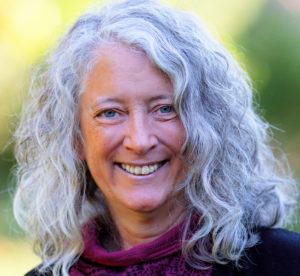
When experts start talking about environmental medicine, it can be tempting to stick our fingers in our ears – the issues can quickly become overwhelming, insoluble, and terribly anxiety-provoking.
Many people today are suffering from chemosensitivity, electrosensitvity, gluten sensitivity, mold sensitivity, and Lyme Disease. These ailments can all create constellations of worrisome symptoms.
A significant number of people are so obsessed with refining their lifestyle choices that it can cause very real anxiety syndromes and other illnesses, spawned by the stressful idea that they themselves have these conditions. And that’s understandable, because people with extreme sensitivities must go to extreme measures to stay well.

However, as I’ve pointed out, some people are not actually sensitive or reactive, while others have moderate sensitivity, and some have extreme sensitivity to environmental and dietary factors.
A person with severe asthma may be housebound for days after breathing the smoke from a distant forest fire, while others may suffer little more than a fleeting cough or headache.
Severe mold sensitivity genetically afflicts about a quarter of the population, and requires truly drastic avoidance and treatment measures – while others may simply exhibit various irksome but relatively mild and quickly passing symptoms.
Celiac patients MUST avoid gluten, even in microscopic amounts. Yet many choose to avoid gluten for less immediate reasons – e.g., because it can be particularly problematic in autoimmune, neurologic, and gastrointestinal disease.
On the other hand, occasional general symptoms of possible gluten sensitivity are a good reason to avoid gluten if we can, and to use specific enzymes for incidental or accidental consumption if we cannot – and then not stress about it.
I mention these symptom complexes as models for how electrosensitivity, like dietary and other environmental sensitivities, is highly individual.
The extremely sensitive may need a completely natural or shielded environment in which to recover. For the rest of us, the awareness that we are living in a field of electromagnetic vibrations, parts of which have been demonstrated to have myriad adverse impacts on human physiology, gives us an incentive to protect ourselves in practical ways.
There are many relatively simple steps we can take.
- Protect yourself by not carrying your smartphone on your body. Use ear buds, and get a corded landline for your home.
- Don’t sleep with your phone.
- Turn your smartphone off in airplanes, vehicles and elevators.
- Hardwire your computer, and turn off WiFi when you aren’t using it.
- Keep laptops off your lap.
- Turn off the router at night.
- Turn off the electricity in your bedroom.
- Avoid your microwave oven.
- Don’t give your toddlers iPads or other tablets, and don’t park them in front of screens.
- Shield those Smart Meters.
Other choices might not be so easy. Do you really want to protect the natural environment by driving an energy-saving hybrid, in full awareness that you’re sitting inside a computer and being bombarded with multiple electromagnetic frequencies as you cruise along?
Do you really need to make phone calls from your car?
Must you depend on all those wearable electronics to instruct you, connect you, and record your life for you? Do you really need you stay wired 24/7?
There are some choices that rise to the level of “Very Difficult” – cases where the benefits most definitely outweigh the cost and risks.
What do we do, for example, with an electrosensitive patient who needs a medical monitoring device?
And should we really be using that baby monitor?
This is all new territory. Thanks to the environment in which we now reside, we must inform ourselves and do our best to choose how we’ll engage with electromagnetic technologies.
Just as we must inform ourselves and do our best to choose non-chemicalized organic food, we need to base our choices on a clear awareness of where we can and cannot have total control,
To learn about Dr. Connie’s work, follow the link to her Naturopathic Health Consultations website.
